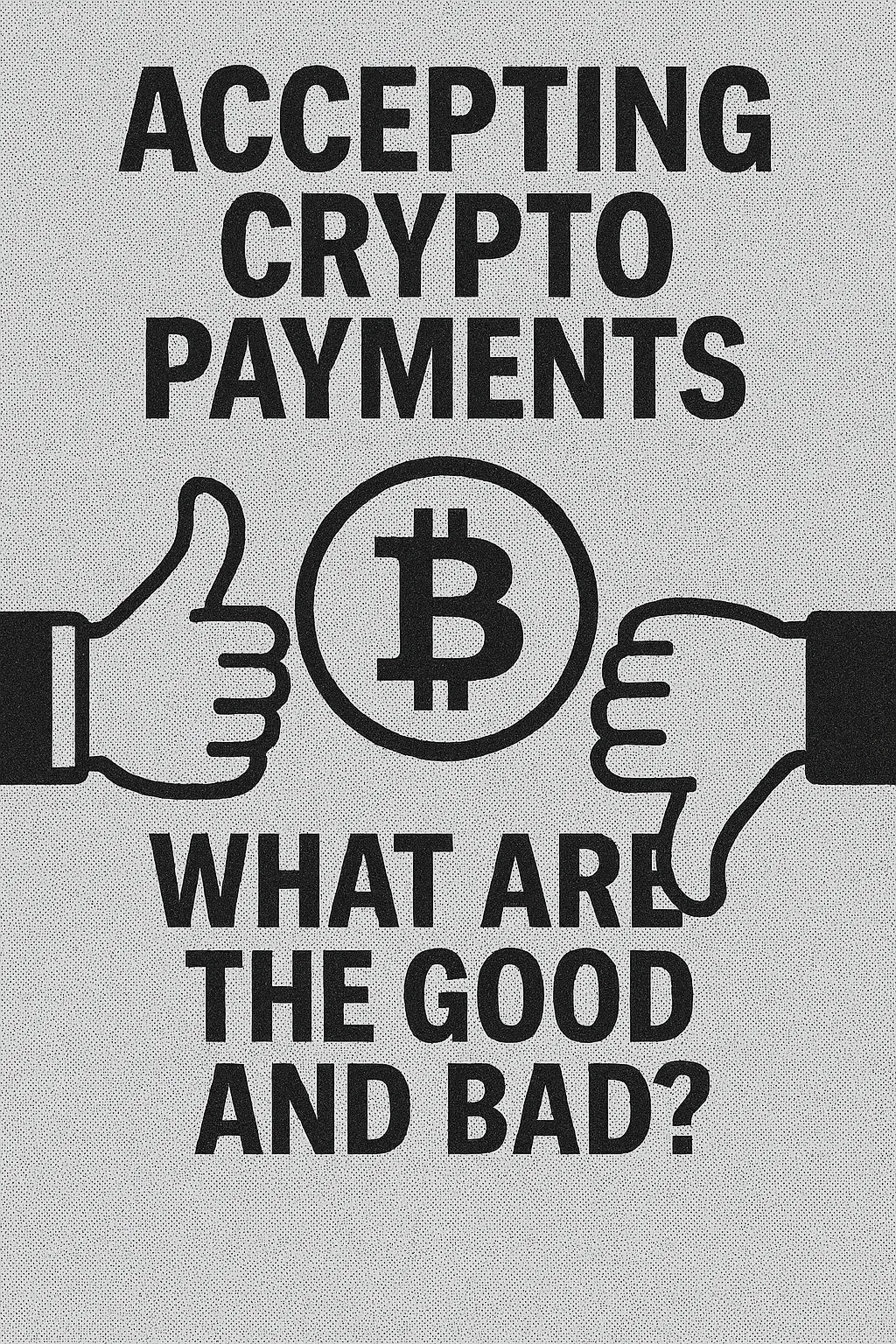
Crypto Payments: What Are the Good and Bad?
With more businesses exploring digital transformation and decentralised finance, the question many small business owners, freelancers, and global brands are now asking is, Should we accept crypto payments?
From Bitcoin to stablecoins like USDT, cryptocurrencies are increasingly becoming a payment option. But as with any innovation, there are both upsides and trade-offs.
So, is accepting crypto good for your bottom line or a future headache in the making?
The Good: Speed, Savings, and Global Access
- Fast Transactions
Crypto payments can be completed in minutes, even across borders. Unlike traditional bank transfers, which may take days (especially internationally), most cryptocurrencies offer near-instant settlement. - Lower Fees
Traditional credit card providers can charge up to 3% per transaction. Crypto networks like Bitcoin Lightning, Solana, and Polygon enable peer-to-peer transactions with significantly lower processing fees. - No Chargebacks
Unlike credit cards, crypto transactions are irreversible. This protects merchants from fraudulent chargebacks, which cost retailers billions annually. - Access to New Customers
Crypto-savvy customers are on the rise. By accepting digital currencies, businesses open themselves to a tech-forward, global audience, especially in regions where access to traditional banking is limited. - Brand Image
Accepting crypto can boost your image as a forward-thinking brand a strategy being embraced by companies like Microsoft, Shopify, and luxury retailers.
The Bad: Volatility, Regulation, and Tech Headaches
- Price Volatility
Cryptos like Bitcoin and Ethereum are notoriously volatile. The value of a payment received today could be worth significantly less tomorrow or more. Unless you convert it immediately, you’re effectively speculating on price movements. - Regulatory Uncertainty
Tax implications vary by country. In the UK, HMRC treats crypto as property, not currency, which can trigger capital gains obligations. Businesses must stay on top of complex compliance rules. - Technical Complexity
Setting up a secure crypto wallet, managing private keys, and integrating payment APIs may be a barrier for non-technical users. Mistakes can be costly there’s no “forgot password” button for a lost crypto wallet. - Limited Consumer Usage
Despite media hype, most consumers still prefer fiat for everyday purchases. Unless your audience is crypto-native, you may not see much usage early on. - Security Risks
Crypto payments reduce fraud from chargebacks but increase risk from hacks. If you self-custody, your business becomes a potential target for cyberattacks.
So, Should You Accept Crypto?
If your customers are global, tech-forward, or in regions with limited banking access, Crypto payments can be a smart addition. For others, it may be best viewed as a complementary option not a full replacement for traditional systems.
Whichever route you take, understand the tools, tax rules, and security precautions before jumping in.
Crypto is here to stay. But like any currency, it works best when handled with care.
Stay on top of any cryptocurrency news by following us on X @ouinex